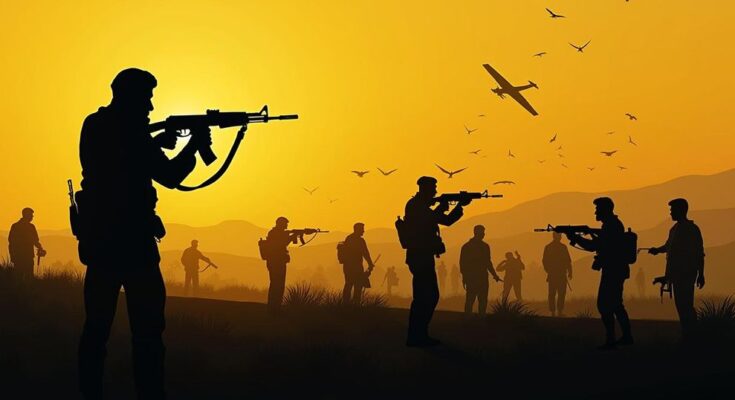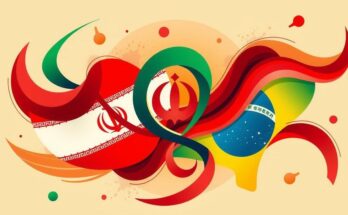Hassan Nasrallah, the leader of Hezbollah, was killed in an Israeli airstrike in Beirut, affirming a significant shift in Lebanon’s political sphere. Once celebrated as a resistance figure, his image deteriorated with Hezbollah’s roles in Syria and Iranian involvement. The changing dynamics during his tenure will challenge Hezbollah’s future, as they must select a new leader to navigate ongoing regional conflicts and domestic perceptions.
The assassination of Hassan Nasrallah, the leader of Hezbollah, in an Israeli airstrike on Beirut on Friday evening has cemented a pivotal moment in Lebanon’s political landscape. Nasrallah had long been regarded as a significant figure not only in Lebanon but across the broader Arab world, particularly after the 2006 war with Israel, which solidified his status as a hero to many due to his steadfast opposition to Israeli incursions. However, his reputation began to decline with Hezbollah’s military involvement in the Syrian conflict, where the group fought to support the regime of Bashar al-Assad. This shift transformed Nasrallah’s image from that of a champion of resistance to that of a leader perceived as serving Iranian interests, inviting criticism from various Arab nations. Nasrallah’s early life in East Beirut was characterized by a devout interest in Islam and politics, influenced by the teachings of the Shia scholar Musa al-Sadr. He initially joined the Amal movement, a prominent Shia party, but broke away in 1982 to form Hezbollah with the backing of Iran. Under his leadership, Hezbollah emerged as a vanguard for Shia rights and played a crucial role in Lebanese politics. Throughout his tenure, Nasrallah utilized his charismatic presence and oratory skills to solidify his influence, often addressing issues relevant to ordinary citizens while emphasizing the group’s anti-Israel stance. His tenure marked Hezbollah’s transition into a recognized political entity participating in democratic processes. Nevertheless, his leadership faced scrutiny over alleged ties to Iran and accusations of undermining Lebanon’s internal stability, especially amid nationwide protests against government corruption in 2019. Despite these challenges, Nasrallah maintained a strong following among Lebanon’s Shia population but divided opinion throughout the region. Following the escalation of conflict in Gaza in October 2023, Hezbollah breached the Israeli border, yet suffered significant losses amidst renewed Israeli military responses. Nasrallah’s defiance continued until his death, posing questions regarding Hezbollah’s future leadership and direction after the loss of a figure widely considered its embodiment. The upcoming decisions by Hezbollah will likely have ramifications beyond its own ranks, significantly impacting the political climate of Lebanon and the wider region.
Hassan Nasrallah served as the Secretary-General of Hezbollah for over three decades, leading the organization through periods of significant political and military engagement in Lebanon and the broader Middle East. Born in 1960 in East Beirut, Nasrallah’s life was characterized by a strong commitment to Shia interests and resistance against Israeli actions in Lebanon. The political landscape of Lebanon during his rise was marked by civil strife, the influence of foreign powers like Iran, and shifting allegiances within various sectarian groups. Importantly, his leadership saw Hezbollah transition into a legitimate political party, participating in national elections and garnering substantial support among the Shia demographic. However, his alignment with Iranian interests and his role in regional conflicts ultimately led to a complex and often controversial legacy.
The death of Hassan Nasrallah marks a watershed moment for Hezbollah, ending the tenure of a leader who greatly shaped the group’s identity and strategies in dealing with both domestic and international challenges. While Hezbollah’s organizational structure may ensure continuity, the loss of Nasrallah’s unique influence raises critical questions about the future trajectory of the group and its impact on Lebanon’s sociopolitical fabric. As Hezbollah prepares for leadership transition, the region watches closely, as its decisions will resonate far beyond its immediate context, affecting alliances and dynamics across the Middle East.
Original Source: kashmirreader.com




